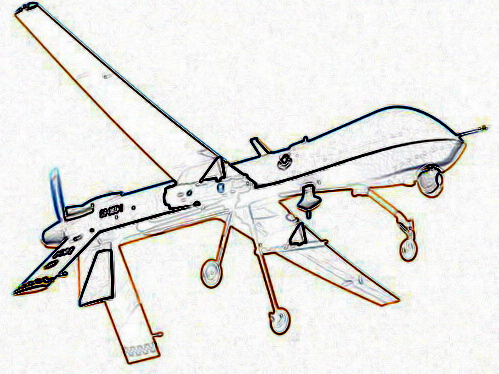By David Rowe
Op-Ed Contributor
The Obama administration is criticized for not having a distinct Caribbean policy, although that criticism may be too harsh.
The administration, through the steady hand of Secretary of State Hillary Clinton, has taken a strong anti-narcotics, pro-Rule of Law position, appointing experienced diplomats to Caribbean positions and being intolerant of narco -corruption in the region. Perhaps if there is a second Obama administration, an omnibus Caribbean aid package could be contemplated.
For the past year and a half, the Department of Homeland Security has quietly tested and operated a number of unmanned surveillance Predator drones over Bahamian waters.
In the future, the drones will likely be used to expand surveillance flights in the Caribbean to fight drug smuggling. United States drone flights will permit the Department of Homeland Security to have surveillance over waters that are currently used for drug and human trafficking.
Critics say that drones are not effective against speedy go-fast boats (canoe-like boats with large outboard motors) ranging towards the Eastern seaboard through the Caribbean Sea.
The spotting and detection of these vessels is currently within the province of the US Coast Guard and the Drug Enforcement Agency. These agencies work closely with Caribbean security ministries through US diplomatic attaches to optimize interdiction efforts.
The DEA has indicated that Mexican cartels are now using submarines to ship cocaine and marijuana to the US coastline. Will the Predator drones be effective against submarines and go-fast boats carrying drugs to the United States coastline? Drug submarines are said to have navigated Jamaica’s Black River on their way to the open sea.
Jamaica and the Bahamas have complained about their lack of local capability to keep their borders tightly policed. The Mexican cartels are experiencing difficulty crossing the US-Mexican border with drugs, so they are now shifting to seaborne routes. Drug seizures in the Caribbean are therefore escalating.
The homicide rates in Puerto Rico, Jamaica and the Bahamas have increased at the same time. Caribbean nations have a recent history of transnational cooperation with the United States.
The Shiprider Agreement permits US Coast Guard and Caribbean vessels to jointly pursue suspected drug vessels.
Shiprider is a transnational agreement in which US law enforcement officers can cooperate with local Caribbean martime enforcers to stop narcotic couriers in the open waters.
Customs and Border Patrol has requested new funding from the US Congress for future predator enforcement in the Caribbean.
There will be a Predator campaign similar to the one being undertaken by the United States Customs and Border Patrol Protection agency, which has flown predator drones at an altitude of 15,000 feet policing immigration, drug smuggling and terrorism on the US-Mexican Border.
Aerial drones have transformed the ways United States fights its wars. The war against drugs in the Caribbean will now be subjected to aerial reconnaissance and retaliation. For Jamaica and the Bahamas, which both have crises that are related to drug crime, this is good news.
David P Rowe is an attorney in Jamaica and Florida and a law professor at the University of Miami School of Law in Coral Gables, Fla.
Note: the opinions expressed in Caribbean Journal Op-Eds are those of the author and do not necessarily reflect the views of the Caribbean Journal.
